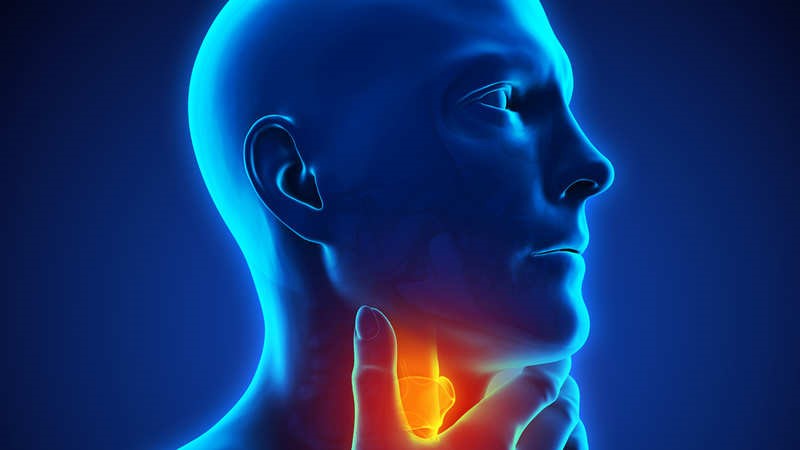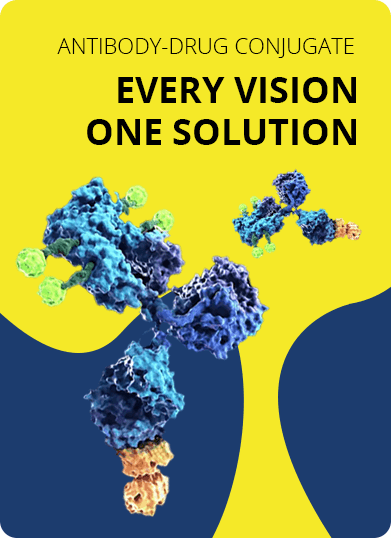- Home
- Applications
- Oesophageal Cancer
ADC Development Services for Oesophageal Cancer Research
The poor prognosis and rising incidence of oesophageal cancer highlight the need for targeted therapies. Recently, with increasing insights into the molecular mechanism of oesophageal cancer, a variety of molecular targeted agents have been developed. Improvements in antibody-drug conjugate (ADC) technology, such as the advent of tumor specific antibodies, antibody engineering, improved linker technology and more potent cytotoxic payloads, have increased the appeal in using ADCs in the treatment of patients with oesophageal cancer. Creative Biolabs is an undisputed global leader in providing custom ADC design and development services for a wide variety of diseases. We now offer high-quality ADC preparation services against targets involved oesophageal cancer to help you make progress on your ADC drug development project.
Introduction of Oesophageal Cancer
Oesophageal cancer remains an integral cause of cancer-related death and has shown a drastic increase of more than 6-fold in incidence rates worldwide. The two main subtypes of oesophageal cancer are squamous cell carcinoma and adenocarcinoma. These subtypes account for more than 95% of malignant oesophageal tumors. Rare subtypes of oesophageal cancer include lymphomas, melanomas, carcinoid tumors, and sarcomas. Squamous cell carcinoma is more common in non-industrialized countries, and important risk factors include alcohol use, smoking, and achalasia. Adenocarcinoma is the predominant oesophageal cancer in developed nations, and important risk factors include chronic gastroesophageal reflux disease, obesity, and smoking.

Oesophageal cancer is often asymptomatic in the early stages. Patients with advanced disease may present with progressive dysphagia (solids first, followed by liquids as the disease progresses), unintentional weight loss (10% or more in the preceding three to six months), odynophagia (painful swallowing, often noticed initially with dry foods), new-onset dyspepsia, heartburn unresponsive to medication, chest pain, or signs of blood loss. Of these symptoms, dysphagia alone or combined with unintentional weight loss is the most common presentation in patients with oesophageal cancer. Most patients have already manifested the advanced disease at diagnosis and are therefore precluded from curative surgical resection.
Diagnosis and Treatment for Oesophageal Cancer
Chromoendoscopy and narrow band imaging are often used during endoscopy to improve identification of suspicious lesions. After the diagnosis is confirmed with endoscopic biopsies, additional laboratory studies may be helpful in evaluating the tumor stage. Multimodality neoadjuvant concurrent chemoradiotherapy (CCRT) has been increasingly administered in the treatment of oesophageal cancer. In the past years, randomized trials have demonstrated a convincing survival rate benefit through the use of neoadjuvant CCRT followed by surgery for patients with locally advanced oesophageal cancer. Although the 5-year overall survival rate and recurrence free survival rate in oesophageal cancer patients were high after receiving CCRT, not all oesophageal adenocarcinoma patients responded to neoadjuvant chemoradiation therapy. It has been reported that nearly 60% of patients did not respond to neoadjuvant chemoradiation, which reduced the success of surgery. Thus, identification of biomarkers for targeted therapy remains necessary.
Targeted Therapy for Oesophageal Cancer
Targeted therapy for oesophageal cancer has seen an unprecedented growth as a result of our better understanding of the molecular mechanisms involved in esophagogastric tumorigenesis. At present, targeted therapy for oesophageal cancer include
- Epidermal growth factor receptor (EGFR)-targeted therapies: Anti-EGFR monoclonal antibodies (mAbs) and anti-EGFR tyrosine kinase inhibitors.
- Human epidermal growth factor receptor (HER2)-targeted therapies: Anti-HER2 mAbs and anti-HER2 tyrosine kinase inhibitors.
- Vascular endothelial growth factor (VEGFR)-targeted therapies: Anti-VEGF/VEGFR mAbs and anti-VEGFR tyrosine kinase inhibitors.
- c-MET-targeted therapy: Anti-c-MET mAbs and anti-c-MET inhibitors.
The inhibitors of these targets have shown efficacy with or without intolerable toxicities. However, the molecular-targeted therapy may lead to acquired resistance. Dysregulation of EGFR internalization and degradation, and genetic mutations may lead to resistance to EGFR antibody. Genetic alterations in the PI3K/AKT pathway are correlated with resistance to HER2-targeted therapy. The mechanisms of resistance to c-MET targeted agents involve upregulation of HER kinase signaling, mutation of the MET activation loop, and amplification of KRAS. Some clinical trials have to be stopped because of serious adverse events. Thus, it is needed to develop new therapy combining different agents with existing and novel treatment modalities to maximize therapeutic benefits.
ADC is one of the potential strategies to increase the antitumor activity of an antibody. Several malignancies including oesophageal cancer have been reported to be treated by P-Cadherin-targeted ADCs. For example, PCA062 is an anti-P-Cadherin ADC in which an IgG1 mAb is conjugated to the maytansinoid DM1 via a non-cleavable thioether (SMCC) linker, which is currently being evaluated in a Phase I trial.
What Can We Do for You?
Creative Biolabs possesses unique ADC Antibody Screening platform to screen “internalizing” antibodies which is of highly importance in ADC assembly. Our Antibody Design and Conjugation platform has been tested by numerous successful ADC projects and our perfect DrugLnk™ Custom Synthesis platform also supplies customary synthesis of individual toxins module, linker module and drug-linker complexes. Creative Biolabs also provides further ADC in vivo Analysis and ADC in vitro Analysis for the evaluation of ADC candidates. We are confident in offering you high-quality customized ADC Development.
ADC therapies are poised to aid in the treatment of oesophageal cancer. If you are interested in our ADC development services for oesophageal cancer, please feel free to contact us for more information.
For Research Use Only. NOT FOR CLINICAL USE.

Online Inquiry
Welcome! For price inquiries, please feel free to contact us through the form on the left side. We will get back to you as soon as possible.
